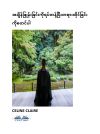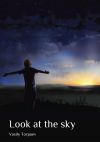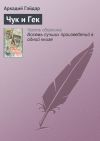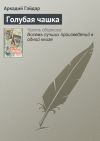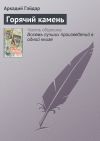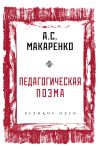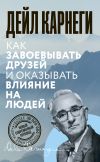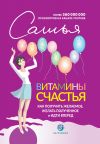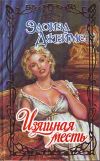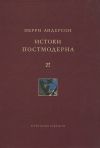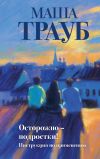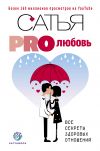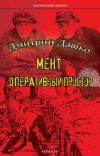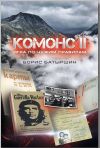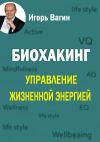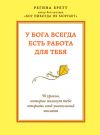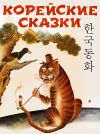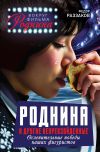Текст книги "Послания любви. 365 писем Ошо"

Автор книги: Бхагаван Раджниш (Ошо)
Жанр: Зарубежная эзотерическая и религиозная литература, Религия
Возрастные ограничения: +16
сообщить о неприемлемом содержимом
Текущая страница: 5 (всего у книги 19 страниц) [доступный отрывок для чтения: 5 страниц]
159. Love.
Life is not divided, either in time or in space.
If life is anything, it is undividedness – it is an undivided flow.
Past, present, future – these are human lines drawn on the undivided
flow of time.
Indeed, they are nowhere except in the minds of men.
Mind is time.
Similarly, space is also undivided.
The body is not one’s limit – in fact, the limit or non-limit of the whole
is one’s limit.
But, the mind does not rest without dividing.
It is like a prism; to divide is its function.
Passing through it the ray of existence becomes divided into many rays
and many colors.
What is one at the root becomes many at the branches.
The root is eternal – beginningless, endless.
Branches are in time – they have their beginning, they have their end.
Branches are change.
The root is ever-lasting.
Neither the root changes nor can it be changed.
Yes – one can desire it to be changed, and then such a desire
inevitably takes one into failure and anguish.
Branches go on changing.
They cannot be stopped from changing.
But certainly it can be desired that they don’t change, and then
such a desire inevitably transforms itself into failure and anguish.
The West is in the first kind of failure and anguish.
The East is in the second kind of failure and anguish.
And so far man has not been able to give birth to such a culture
which not only succeeds but becomes fulfilled too.
The two realities I have talked about above – the reality of the root
and the reality of the branches; the law of the intransient
and the law of the transient – it is only in the harmonious balance
of these two that such a culture can be born
which will neither be polar nor lopsided,
which will use the tension of the opposite poles, the same
as architecture
uses opposing bricks in creation of an arched door.
The truth of life is pluralism.
And, the stream of life always flows taking the opposite poles
as its banks.
160. Love.
We just do not know life, that is why we get bored.
We make life mechanical, that is why we get bored.
We are not living life, we only drag along with it, that is why we get bored.
Boredom is not in life, rather it comes out of our fear of living.
We are not only afraid of death – we are afraid of life as well.
In fact, we fear death because we fear life.
Otherwise, death is not the end of life – it is the completion of life.
This is why I say: live – live fearlessly.
Let go of the past: man goes on carrying it because of fear.
And do not invite dreams of the future, because in order to avoid living today
man plans for living in the future.
Live today, and now, and here.
‘Tomorrow’ is a deception –
the ‘tomorrow’ that has passed as yesterday, as well as the tomorrow
that is yet to come.
Only this moment is.
Only this moment is eternal.
161. Love.
Life is a mystery.
It can be lived.
It can also be known by living it.
But it cannot be solved like a mathematical problem.
It is not a problem – it is a challenge.
It is not a question – it is an adventure.
Hence, those who only go on asking questions about life remain,
by this action, deprived of the answer forever.
Or acquire answers which are not answers at all.
It is such answers that one acquires from scriptures.
In fact, an answer acquired from any other source
cannot be an answer.
Because the truth of life cannot be borrowed.
Or such questioners fabricate answers of their own;
thus they certainly gain consolation, but not solutions.
Because fabricated answers are not answers.
Only the experience can be an answer.
Hence, I say: do not ask – live and know.
This is the difference between philosophy and religion.
To ask is philosophy, to live is religiousness.
And, the interesting thing is that philosophy asks but never gets the answer,
and religion does not ask at all and yet attains the answer.
162. Love.
Society is only a collectivity of individuals.
Hence, finally and essentially, it is a reflection of the minds
of the individuals.
If the individual mind is without peace, the society cannot be at peace.
Only a radical transformation of the individual mind can become the peace
of the society.
There is no other alternative.
Nor is there any shortcut.
The technique for individual transformation is meditation.
With more and more people moving into meditation; only then
is something possible.
To take shelter in the divine is the only way.
1971
163. Love.
You ask for the way to make the invisible visible?
Pay attention to the visible.
Do not just see, pay attention.
It means, when you see a flower,
let your whole being become the eye.
When you listen to the birds, let your entire body-soul become the ear.
When you look at a flower, do not think.
When you listen to birds, do not ponder.
Let the total consciousness
either see or hear or smell or taste or touch.
Because it is due to a shallowness of sensitivity that the invisible is unable
to become visible,
and the unknown remains unknown.
Deepen the sensitivity. Do not just swim in sensitivity, drown in it.
This I call meditation.
And, in meditation, the seen disappears
and finally the seer too. There remains only the seeing.
It is in this seeing that the invisible becomes visible
and the unknown becomes known.
Not only this – even the unknowable becomes knowable.
And remember that whatever I am writing –
do not start thinking about this as well: act.
Nothing has ever been nor can be attained
by creating theories.
There is no other door except ‘seeing for oneself’.
164. Love.
You ask: how far is the destination?
Ah! The destination is very far, and very near too.
And the distance or the nearness of the destination
is not dependent on the destination but upon you yourself.
The deeper the will, the nearer the destination.
If the will is total, then you yourself are the destination.
165. Love.
The word is not the thing –
the word God is not God.
But the mind goes on accumulating words and
words and words,
and then the words become the barrier.
See this as a fact with you:
can you see anything without the word?
Can you feel anything without the word?
Can you live even for a single moment without the word?
Do not think but see
and then you will be in meditation.
To exist wordlessly is to be in meditation.
166. Love.
Always see what is –
the facts.
That which is.
Do not project anything,
do not interpret,
do not impose any meaning:
that is, do not allow your mind to interfere,
and you will begin to encounter reality.
Otherwise everyone lives in his own world of dreaming.
And meditation is the coming out of these worlds,
these dreaming patterns.
A philosopher stopped Mulla Nasruddin on the street.
In order to test whether the Mulla
was sensitive to philosophical knowledge
he made a sign, pointing at the sky.
The philosopher meant: There is only one truth,
which covers all.
Nasruddin’s companion, an ordinary man, thought:
The philosopher is mad.
I wonder what precautions Nasruddin will take.
Nasruddin looked in his knapsack and took out a coil of rope.
This he handed to his companion.
Excellent, thought the companion.
We will bind him up if he becomes violent.
The philosopher saw that Nasruddin meant:
Ordinary humanity tries to find truth by methods
as unsuitable as attempting to climb
into the sky with a rope.
Now can you remain content with the fact
of Mulla Nasruddin giving the rope to his companion
without any interpretation whatsoever?
Remain with the fact, and you will be in meditation.
167. Love.
The ego is necessary
for both the sensation of pain and the feeling of pleasure
and vice versa also –
the sensation of pain and the feeling of pleasure,
are necessary for the existence of the ego.
In fact these are two sides of the same coin.
The name of the coin is ignorance.
Understand this
and do not fight with the ego
or with pain and pleasure,
because unless ignorance is gone
they will not go, they cannot go.
And you cannot fight with ignorance
because ignorance is just absence of something –
absence of yourself.
So be present to your ignorance,
be aware of it,
and then you will be and there will be no ignorance
because you and ignorance cannot exist simultaneously,
as with light and darkness.
168. Love.
A small boy with a penny
clutched tightly in his hot little hand
entered the toy shop
and drove the proprietor to distraction
asking him to show this and that
and everything
without ever making up his mind.
Look here, my boy, said the storekeeper finally.
What do you want to buy for a penny –
the whole world with a fence around it?
The boy thought for a moment
and then replied: Let me see it.
And I say to you that ordinarily
no one in this world is different from that small boy.
But unless one is different, one is not mature.
And maturity does not come with age alone,
maturity comes through understanding the distinction
between that which is possible
and that which is not possible.
169. Love.
Things go on changing without.
You must mirror them,
you must reflect them,
but remember always that the mirror remains the same.
Mirroring does not change the mirror.
Do not be identified with mirroring.
Remember yourself as the mirror –
that is what is meant by witnessing.
And witnessing is meditation.
Lieh-Tzu exhibited his skill in archery to Po-Hun Wu-Jen.
When the bow was drawn to its full length
a cup of water was placed on his elbow
and he began to shoot.
As soon as the first arrow was let fly
a second one was already on the string
and a third followed.
In the meantime he stood unmoved like a statue.
Po-Hun Wu-Jen said: The technique of your shooting is fine,
but it is still a technique.
You look just like a statue from without.
Now let us go up to a high mountain
and stand on a rock projecting over a precipice
and then you try to shoot.
They climbed up a mountain.
Standing on a rock projecting over a precipice
ten thousand feet high
Po-Hun Wu-Jen stepped backward
until one third of his feet was hanging over the rock.
He then motioned to Lieh-Tzu to come forward.
Lieh-Tzu fell to the ground
with perspiration running down to his heels.
Po-Hun Wu-Jen said:
The perfect man soars up above the blue sky
or dives down to the yellow springs,
or wanders about all over the eight limits of the world,
yet shows no signs of change in his spirit.
But you betray a sign of trepidation
and your eyes are dazed.
How can you expect to hit the target?
170. Love.
Do you want to ask questions?
Or do you want to get answers?
Because if you want to ask questions
then you will not get answers,
and if you want to get answers
then you cannot be allowed to ask questions –
because the answer is in that consciousness
where the questions have not yet been raised,
or have been uprooted and thrown out.
171. Love.
I hope you will be moving in deep meditation.
Breathe in it
sleep in it
live in it –
let meditation be your very existence.
Only then is the happening.
Don’t do it, but be it.
And my blessings are always with you.
If you need any help from me just ask when
you are thoughtless,
and it will be given to you.
172. Love.
A madman entered the bazaar and declaimed:
The moon is more useful than the sun.
But why? asked someone.
We need the light more
during the night than during the day, he said.
And I say to you that
all our metaphysical theories and explanations
are not of more worth than the explanation of that madman.
173. Love.
Ask for nothing and you will never be frustrated.
Anticipate darkness with light and sorrow with happiness
because such is the nature of things.
Then you will never be frustrated.
Say to life: What can you do to me? I want nothing!
And say to death: What can you do to me? I have already died!
Then you will be truly free,
because unless one is free of life one can never be free of death.
And when one is free of both
one knows that life which is eternity itself.
174. Love.
Man is always lacking,
because he desires without knowing himself,
because he desires to become something
without knowing his being,
and this is absurd.
First one must know his being
otherwise there will be anguish.
Becoming is anguish
because it is a constant tension
between that which is and that which should be –
and it is an impossible longing also
because only that can be which is.
So know yourself as you are
without any ideals,
without any judgment
and without any condemnation.
Go deep within yourself without any desires to become
because only then can you know yourself.
Discover yourself,
not according to anybody else,
but as you are.
Discover the fact,
discover the real
in its total nakedness.
In this total authenticity
just be a witness,
and then there is an altogether different quality to life,
the quality of let go.
Then one is relaxed totally.
And all flowering is in relaxation,
and all benediction.
175. Love.
Fear cripples consciousness,
and fear is the source of unconsciousness,
that is why without transcending fear
no one can attain to full consciousness.
But what is fear?
Fear is awareness of death without knowing what death is.
Fear exists in the gap between you and your death,
and if there is no gap, no space,
then there is no fear.
Do not think of death as something outside you
because it is not.
And do not think of death as something in the future
because it is not.
Death is within you,
because death is the other side of life.
Life cannot exist without death;
they both belong to the same energy
as positive and negative poles.
So do not identify yourself with life –
because you are both.
The identification with life creates the gap.
And death has nothing to do with the future,
it is always here and now.
Every moment, it is.
And when one ceases to regard it
as something outside oneself
and, so to speak, draws it into his consciousness
and assimilates the idea of it,
one is completely changed.
He is in all truth born again.
And then there is no fear
because then there is no gap.
176. Love.
Thinking is necessary but not enough,
one must know living also,
otherwise one becomes like the philosopher
mentioned by Soren Kierkegaard
who builds a fine palace
but is doomed not to live in it.
He has a shed for himself next door to what
he has constructed for others,
including himself, to look at!
Meditation is not thinking, but living.
Live it daily, moment to moment;
that is, live in it or let it live in you.
It is not something other-worldly either,
because all such distinctions are from the mind:
they are speculative and not existential,
and meditation is existential.
It is no more than one’s everyday life lived totally.
When Mencius says: The truth is near
and people seek it far away,
he means this.
When Tokusan is asked about it he replies:
When you are hungry you eat,
when you are thirsty you drink,
and when you meet a friend you greet him.
He means this.
Ho Koji sings: How wondrous this, how mysterious!
I carry fuel, I draw water.
He also means this.
And when you are near me
whatsoever I may say I always mean this.
Or I may not say anything –
but then too I always mean this.
177. Love.
Religion is so much an experience
that it cannot be handed over by one to another.
But there are traditions of religious experience –
which are bound to be false
because of the very nature of the religious experience.
One has to travel the path alone
with no footprints of other travelers even to guide one.
Hassan of Basra was asked: What is Islam and who
are the Muslims?
He is reported to have said:
Islam is in the books
and Muslims? Muslims are in the tombs.
178. Love.
The world itself is a punishment enough,
so really there is no need for hell at all.
Once a man who had three wives
was brought before the king of the country for punishment.
The king called in his counselors and asked them to devise
the worst possible punishment for the offender,
even death itself.
But they did not order his execution,
ruling instead that it would be still worse for him
to live with all three wives at the same time.
Two weeks later the man committed suicide.
179. Love.
I have no special doctrine or philosophy,
no set of concepts or intellectual formulas,
but only certain irrational devices
through which I can push you into the unknown.
I do not believe in any theories
or any systems of thought,
but I have faith in certain existential situations
through which I can throw you into the unknown.
Intellectual understanding is not understanding at all
but only a deception.
Understanding is always of the total,
of the whole being.
Intellect is only a part, and that too a minor one,
but it acts as the whole
and thereby creates all sorts of stupidities.
Do not be identified with your intellect.
Dissolve it into the whole of your being,
and then you will know what understanding is –
and the bliss and the ecstasy that follow it inevitably.
180. Love.
Meditation is a mirror –
and the most faithful one.
Whoever goes into meditation
risks a confrontation with himself.
The mirror of meditation never lies,
and it does not flatter.
It is impartial and innocent
and it never projects anything.
It only faithfully shows your real, original face,
the face we never show to the world,
the face that we ourselves have forgotten.
So it is possible
that you yourself
may not be able to recognize it the first time!
But do not escape from it.
Face it and you will come to know it and recognize it.
This confrontation is the first test of courage
on the inner way.
So when it comes about –
rejoice and feel blessed.
181. Love.
Yes, there is tension.
To be consciously conscious is to be tense,
but it is not because of consciousness
but because of partial consciousness.
The unconscious is always
behind the so-called consciousness.
This situation creates tension
because this creates a dichotomy, a duality;
hence the tension.
The being, which cannot be divided,
is divided,
hence the tension.
The unnaturalness of the situation
is the root cause of this tension,
and for that matter of all tensions,
because then one is not individual,
that is, indivisible;
therefore there is tension,
and one cannot really relax unless one is one.
Either be totally unconscious as in deep and
dreamless sleep –
and then there is no tension,
or be totally conscious –
and then you are in the state of no-tension
because the total can never be tense.
That is why the whole is the holy.
But falling into a deep sleep-like trance
is just escaping the problem,
and that too only for the time being,
because you will be back soon –
and worse off,
because by such escapes
the gap between
the conscious and the unconscious
is not bridged
but, on the contrary, widened even more.
One becomes split and schizophrenic.
So always be aware of the mind
because it tries to find solace in unconscious states
in so many ways –
through chemical drugs,
through auto-hypnotic means, and otherwise.
Begin to be aware of anything
which ordinarily happens unconsciously,
for example – anger, jealousy, pride –
and your consciousness will be deepened.
Act consciously,
even in day-to-day acts be conscious,
for example walking, eating, talking,
and your consciousness will be expanded.
Be alert when thinking.
No thought should be allowed to pass unwitnessed.
And then, in the end, there is an explosion
in which you become totally conscious,
with no unconsciousness behind.
When this happens one is one,
and to be one is to be silent.
This silence is beyond time and space,
because it is beyond duality.
182. Love.
God is when you are not.
When you are it is not
because you are nothing but a blindness.
The ego cannot see,
the ego cannot be aware,
the ego exists only as a by-product of unconscious living.
One goes on living as if in sleep.
In this sleep the part begins to dream that it is the whole,
and this dreaming becomes a barrier to knowing the whole.
Begin to be aware,
aware of your actions, thoughts and emotions,
just aware.
Because if you condemn or appreciate
you will not be aware –
in any choice the awareness is contaminated
and the darkness of unawareness comes in.
So just be aware without any choice;
then awareness is pure and innocent,
and then awareness is a mirror.
In this mirror-like awareness one never finds oneself
but one finds that-which-is.
And that is God.
But it is only when you are not
because you are the dust which makes the mirror blind.
Because you are the blindness.
183. Love.
There are three forms of knowledge.
The first is intellectual knowledge,
which is in fact not knowledge but only information
and the collection of facts and the use of these
to arrive at further intellectual concepts.
The second is emotional knowledge,
which is also not really knowledge
but the mental state in which man feels
he has known something,
but there is no transformation or mutation of his being.
The first is objective, and out of it science is born,
and the second is subjective, and is the source of all art.
The third is neither,
it is beyond both,
and this third is the real.
It is achieved through meditation
because meditation does not use thinking and feeling
as doors of perception.
Really, these are not doors of perception
but forces of projection.
Through them pure knowing is impossible;
whatsoever comes through them is changed and colored by them.
So unless one is free of all projections
one cannot know that-which-is.
When there are no ripples of thought and emotion
in the consciousness, then and only then
does the third form of knowledge dawn,
and this third is the only real knowledge.
Out of it religion is born,
and out of it is total transformation.
184. Love.
The journey is long
and the path is pathless.
And one has to be alone –
there is no map and no guide.
But there is no alternative.
One cannot escape it,
one cannot evade it.
One has to go on the journey.
The goal seems impossible
but the urge to go on it is intrinsic.
The need is deep in the soul.
Really, you are the urge, you are the need –
and consciousness cannot be otherwise
because of this challenge
and because of this adventure.
So do not waste time – begin.
Do not calculate – begin.
Do not hesitate – begin.
Do not look back – begin.
And always remember old Lao Tzu’s words:
A tree that takes both arms to be encircled
grows from a tiny root.
A many-storied pagoda
is built by placing one brick upon another brick.
A journey of three thousand miles is begun by a single step.
185. Love.
When I say mutation I do not mean simply change.
Change is from the known to the known.
A sinner becomes a saint –
then it is change and not mutation.
You can practice change
but you cannot practice mutation
because only the known can be practiced –
and then any change is going to be only a modified past
because the past will be continuous in it,
and the past also will be the master of it
because it is cultivated by the past.
In other words, change is from this to that,
it is a movement in the known.
But mutation is an explosion:
from this to nothingness,
from here to nowhere.
You cannot practice it –
on the contrary, you are the only hindrance.
So what is to be done?
Really nothing can be done.
Be aware of this helplessness,
and remain in this helplessness.
Do not do anything
because any doing will be escaping
from this fact of helplessness.
Do not move at all –
and then there is an explosion,
and then there is mutation.
186. Love.
Religion is not a promise for the future
but an experience here and now.
But through the priesthood it has become
promises and promises and promises.
At an examination of a class in First Aid
a member, who was also a priest, was asked:
What would you do if you found a man in a
fainting condition?
I would give him some brandy, was the answer.
And if there was no brandy? he was then asked.
I would promise him some, replied the priest.
187. Love.
Wherever there are words there is no real meaning.
But here also are words.
Then what to do?
Read between the words.
Or read that which is said but not written,
or that which is shown and not even said,
or that which is meant and not even shown.
That is – look in,
because the words are without
but the meaning is within.
188. Love.
Reason is not enough;
it is necessary but not enough.
The beyond must be remembered – and always,
because reason in itself is destructive;
alone, it is nothing but an implement to dissect.
It makes a man anti-all and pro-nothing.
It creates absolutely negative minds
which can criticize but cannot create,
because reason has no healing force within itself.
It is only a tiny part and not the whole of life,
and the healing force is always with the whole.
189. Love.
With thought the mind has boundaries
but without thought the mind is just infinite space.
That is why in thoughtless awareness
one stops being a drop
and becomes oceanic.
And then there is great energy.
This energy wipes out everything which is dead.
It wipes out the whole karmic past –
and with no effort at all.
The greater absorbs the lesser and remains untouched.
190. Love.
The will to wholeness is inherent in everything,
but only in man has it become conscious.
Therefore man lives in tension,
and only when this longing is fulfilled
is his negative state of tension erased.
The tension is symbolic of the infinite potential
and also of the infinite possibilities.
Man is not what he can be,
and unless he is that which he can be
he cannot be at ease.
This dis-ease is man,
and health is in wholeness.
The fact that language has one root
for the words whole, holy and to heal
conceals a deep truth:
He who is whole is also healed,
and to be healed is to be whole.
This wholeness can only be achieved
by becoming totally conscious of oneself:
The darkness of the unconscious is to be penetrated
and transformed into light.
And meditation is the method.
191. Love.
The new world revealed in meditation
is not something added from the outside.
It has always been there – within,
is in being itself.
It is being itself.
One may know it or not, but it is there –
as a seed, of course, as a potentiality.
One has to make it actual, that is all.
That is why when it is revealed,
when it flowers,
one laughs uproariously
because it has always been there and one never knew it.
To work towards meditation is just like sculpturing
because as the sculptor chisels out a figure
deeply buried in a mass of inert matter,
so the meditator transforms his own inert potentialities
into living, dynamic and conscious creations.
Of course, here
the creator and the creation and the means of creation
are not different but one
because the meditator himself is all.
And that is why I call meditation the greatest art.
192. Love.
Do not think of others and waste your time;
really, that is a subtle and cunning way of the mind
to escape from itself.
Once a monk asked Ummon:
Sir, you always say that Buddhism helps us in
every possible way,
but how can it help the blind, the deaf or the dumb?
The blind cannot see the teacher’s staff
that is raised before them,
the deaf cannot hear the teacher’s words, no matter how wise,
the dumb cannot ask their questions or speak
their understanding:
so since we cannot help these people
how can we say that Buddhism helps in every possible way?
What good is it?
Ummon just remained silent for a while
and then abruptly poked at the questioner with his stick.
The monk of course jumped back.
Ah! said Ummon. I see you are not blind!
Then he told the monk to come forward, which he did.
Ah-ha! said Ummon. I see you are not deaf!
Then he asked the monk
if he understood what all this to-do was about.
The monk said he did not.
Ah-ha! said Ummon. I see you are not dumb!
193. Love.
Meditation does not require any application of the mind
or use of effort.
It descends upon you as effortlessly as sleep.
You cannot try to sleep,
nor can you try to meditate.
On the contrary,
every effort hinders its smooth and silent coming.
There is no place in it for action or aggression –
and action is always aggressive.
Meditation is passive receptivity.
Mind is aggressive,
meditation is passive.
Be passive
and receptive
and open
and vulnerable
and wait.
The real miracle happens through waiting.
The moment that waiting is total
there is a happening,
and – the explosion.
194. Love.
The problem of life is not philosophical,
it is existential.
You cannot solve it from the outside;
you cannot just be a spectator of it –
you are in it, you are it.
And moreover, what is philosophy?
At the worst a linguistic misunderstanding,
or at best a linguistic analysis.
And even at its best it leads nowhere
because the problem is existential
and it cannot be solved through
language analysis and grammar.
One dark night a dervish was passing a dry well
when he heard a cry for help from below.
What is the matter? he called down.
I am a grammarian,
and I have unfortunately fallen,
due to my ignorance of the path, into this deep well,
in which I am now all but immobilized,
responded the other.
Hold on, friend, and I’ll fetch a ladder and a rope, said the dervish.
One moment please! said the grammarian.
Your grammar and diction are faulty.
Be good enough to amend them. If that is so much more important
than the essentials, shouted the dervish, you had best stay where you are
until I have learned to speak properly.
And he went his way.
195. Love.
Don’t think about surrender at all
because that which thinks about it is the only barrier.
And therefore no one can surrender;
it is not a doing at all, it happens.
You cannot go to it,
it comes to you.
And any effort on your part will hinder its coming.
Be open and effortless, relaxed and passive,
and it will come – it always comes.
I am a witness of it.
196. Love.
Mulla Nasruddin was searching for something on the ground.
What have you lost, Mulla? someone who saw him searching, asked.
My key, said the Mulla. So they both went down on their knees
and looked for it.
After a time the other man asked: Where exactly did you drop it?
In my house, said the Mulla.
Then why are you looking here?
There is more light here than inside my house.
I ask you also – where are you looking for the key?
Inside the house?
Or out there, where there is more light?
197. Love.
There is no end to man’s self-deception, because whatsoever he is
going to do he can rationalize it.
Внимание! Это не конец книги.
Если начало книги вам понравилось, то полную версию можно приобрести у нашего партнёра - распространителя легального контента. Поддержите автора!